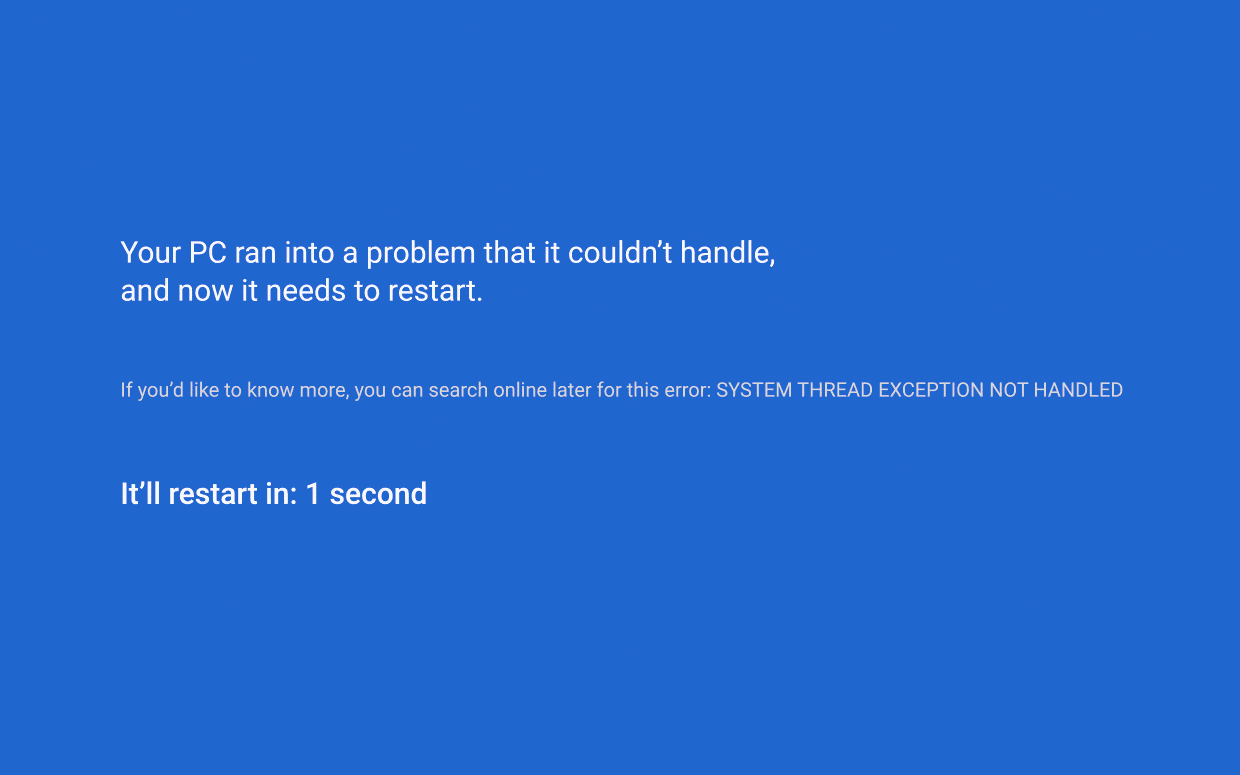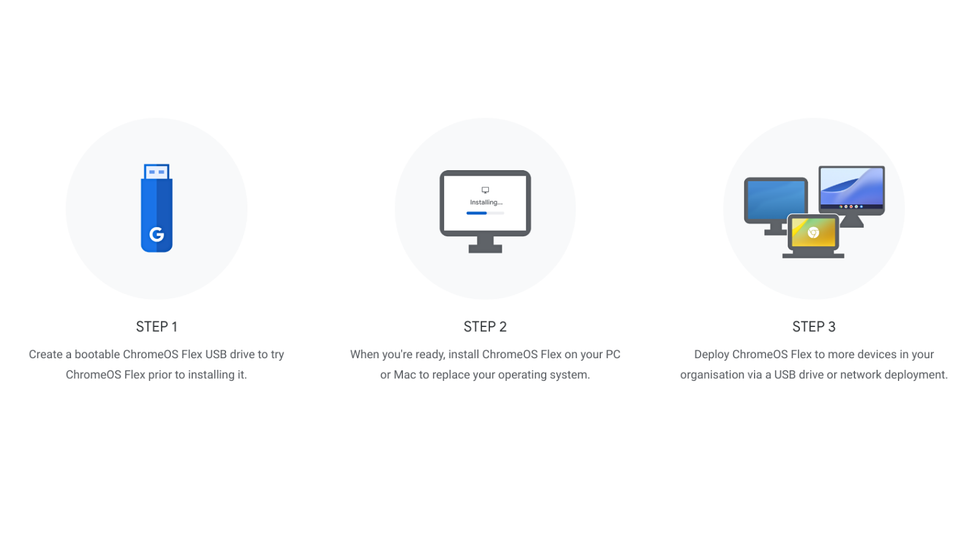Google is making a pitch to disgruntled Windows 10 users with its free-to-use and secure ChromeOS Flex operating system, something that Microsoft should be concerned about
GB NEWS | GOOGLE PRESS OFFICE
"When your opponent is making a false move, it is wise not to disturb him," so goes the proverb credited to Napoleon Bonaparte
Don't Miss
Most Read
Trending on GB News
If there was any doubt that Microsoft’s decision to cut-off support for hundreds of millions of Windows 10 PCs might be a mistake, the fact that rival firm Google is publicly laying the groundwork to welcome these users with open arms is certified proof.
If you haven’t been following this story closely, here’s a brief(ish) recap...
Microsoft will end support for its Windows 10 operating system on October 14, 2025. From that date onwards, it will no longer issue security updates or bug fixes to PC owners — leaving them exposed to hackers and scam campaigns.
This isn’t anything new. Microsoft has limited resources and can’t support every operating system indefinitely, so it will usually sunset support after a few years on the market. What makes Windows 10 such an interesting case is that, for the first time, Microsoft will offer continued support to everyday users for an annual fee.
Known as the Extended Security Update (ESU) program, this was previously a last resort for enterprise customers who hadn’t had a chance to upgrade every device across the business or who relied on specialist software that was unproven with the next operating system from Microsoft. For example, the UK Government paid Microsoft for security support to Windows XP after the cut-off date to keep thousands of computers in the NHS safe from hackers.

Google has poked fun at Microsoft by showing the trademark blue error screen, before showing someone installing ChromeOS Flex in an animated gif posted on the company blog
GOOGLE PRESS OFFICE
Extending ESU to everyday laptop and desktop PC owners for the first time seems to be a tacit acknowledgement from Microsoft that Windows 10 is a different case.
Windows 10 remains far and away the most popular version of Microsoft’s operating system, with some estimates suggesting two-thirds (66.4%) of all Windows users rely on the soon-to-be-defunct software. For comparison, Windows 10 — which launched in October 2021 — sits at roughly 27%.
But all those Windows 10 users could simply upgrade to Windows 11 to avoid paying an ESU subscription to Microsoft and keep their devices safe from hackers, right? Sadly not.
With Windows 11, Microsoft introduced strict hardware requirements that left many devices unable to upgrade. Analyst firm Canalys estimates that 240 million laptops and desktop PCs running Windows 10 will be ineligible to make the leap to Windows 11. Many of these older machines lack Trusted Platform Module (TPM) 2.0 security functionality, which means they can’t be safely recycled either.
This could mean the end of Windows 10 triggers a vast amount of electronic waste, Canalys warns. And if you don’t want to contribute to landfill, you’ll need to set up a Direct Debit for Microsoft’s incoming ESU subscription. Talk about a rock and a hard place...
And that’s where Google comes in.
The Californian company has thrown a life-raft into the choppy waters around Windows 10 — offering PC owners a free operating system that doesn’t have the rigid minimum hardware requirements of Windows 11 and will be updated with security fixes for years to come.
It’s called ChromeOS Flex and it’s a twist on the same software that powers Chromebooks.
In a blog post from Naveen Viswanatha, who serves as Google’s Head of Product for ChromeOS, the pitch to stranded Windows 10 users was laid out in black-and-white for all to see.
“Traditionally, upgrading to the latest available operating system has been a viable way to reduce the chance of an attack, but with hundreds of millions of Windows 10 devices losing support soon because they are ineligible for the newest version of Windows, finding a way to keep these PCs secure and sustainable should be a top priority,” Mr Viswanatha writes.
“With ChromeOS Flex, businesses can install a new, auto-updating operating system on their existing fleet of Windows devices. This modernizes devices, extending their lifespan and keeping them out of landfills, reducing their attack surface, and saving on hardware refresh costs.”
To paraphrase — if Microsoft isn’t interested in keeping you as a customer, you’re very welcome here.

Google outlines the three steps to replace your current operating system with its ChromeOS Flex
Google has enjoyed enormous success with its lightweight ChromeOS in education. The last time we heard about official figures from Google, it confirmed there were 40 million students using its Chrome operating system worldwide. For comparison, Microsoft says there are over 100 million students learning on Windows 10 PCs globally.
Research firm Gartner reports Chromebooks outsold MacBooks at a ratio of two-to-one last year.
But it’s not just education that’s seeing a rise, ChromeOS has become increasingly popular with small- to medium-sized businesses too. The increase in hybrid working during the Covid-19 pandemic led to a spike in users switching to Google's desktop operating system — and the end of Windows 10 could be the next shot in the arm.
Google has highlighted several ChromeOS advantages: Devices running ChromeOS load in as little as six seconds and install operating system and security updates in the background. Any Chromebook released since 2021 will automatically receive 10 years of security updates.
LATEST DEVELOPMENTS
- Microsoft app to boost performance of Windows PCs arrives two years late
- WhatsApp will block screenshots in certain parts of its app with next update
- Microsoft racing to fix ‘critical’ security flaw used by hackers
- This website wipes all trace of your personal data from the internet
- End of the satellite dish? Sky Q slowly phased out as Sky prioritises streaming
And security is another big draw for the free-to-use operating system. Google says there are 24% fewer security attacks on ChromeOS than rival operating systems (presumably, that means Windows and macOS) and there has never been a confirmed ransomware attack on the platform.
Google Chrome already dominates web browser usage worldwide, with more than 3 billion people — roughly 63% of all internet users — relying on the software. And it’s now clear that it wants ChromeOS to follow in its footsteps and take a sizeable share of users from macOS and Windows in the coming years.
Microsoft could be about to hand the Californian company an unprecedented opportunity by ending support for an operating system used by hundreds of millions of PC owners worldwide.
With Google waiting with open arms, Microsoft should extend the deadline or find a way to relax the stringent spec requirements for Windows 11.








